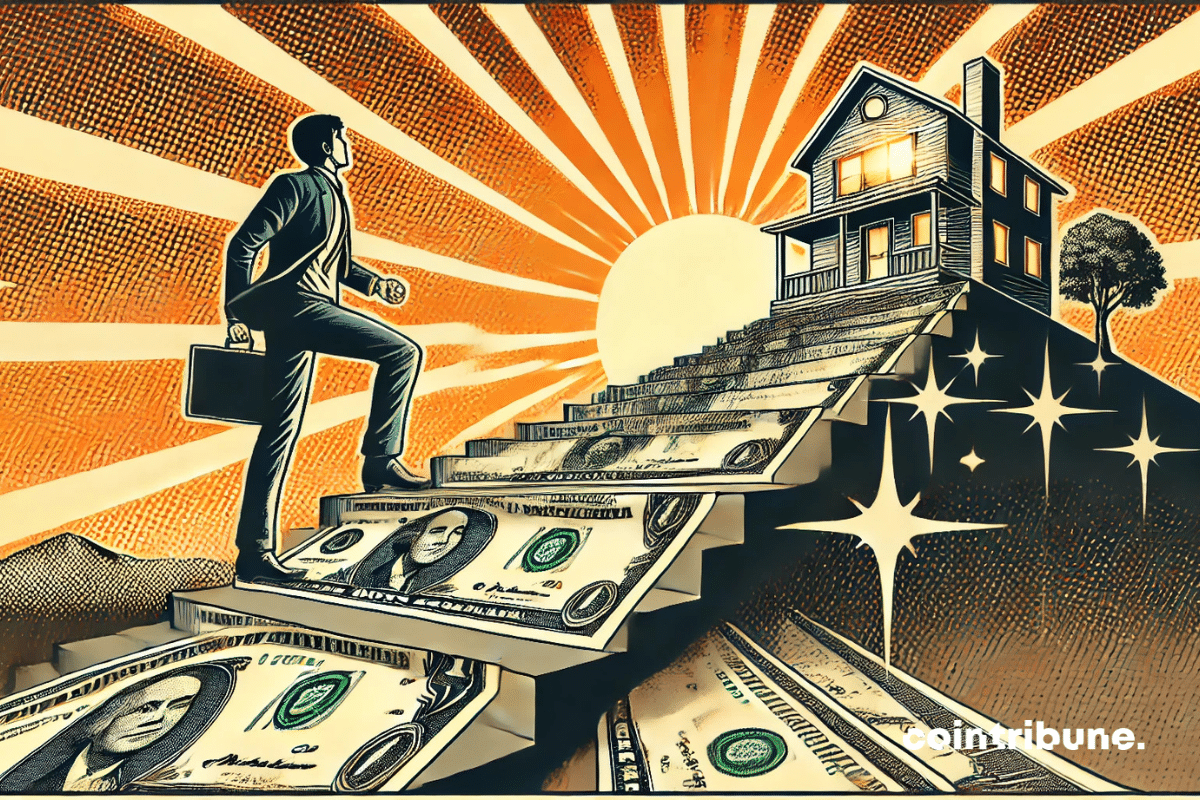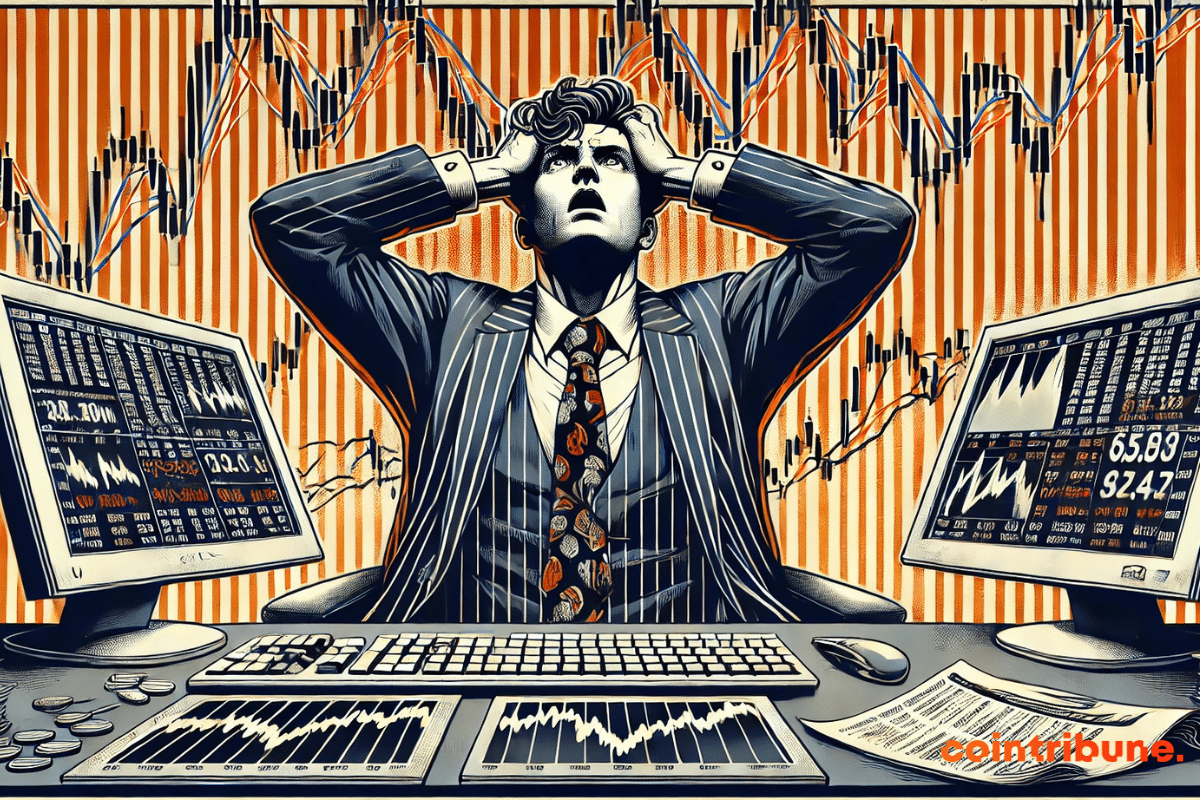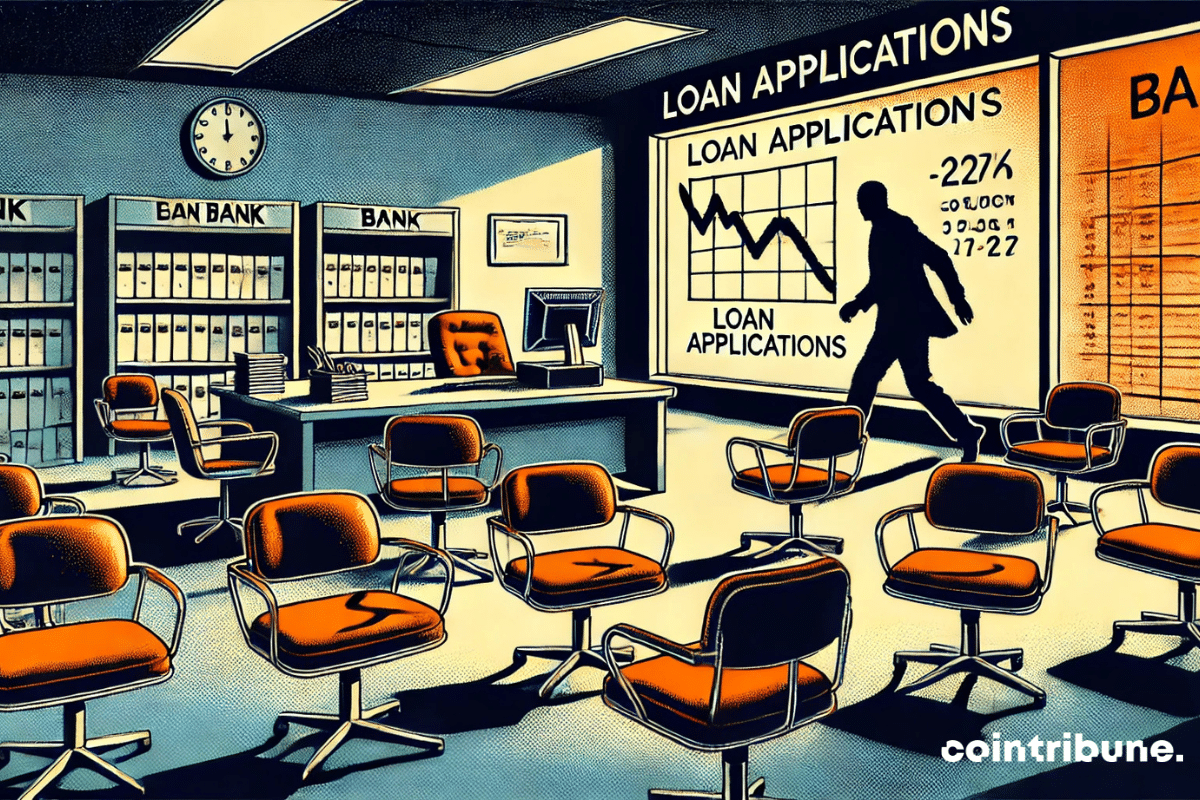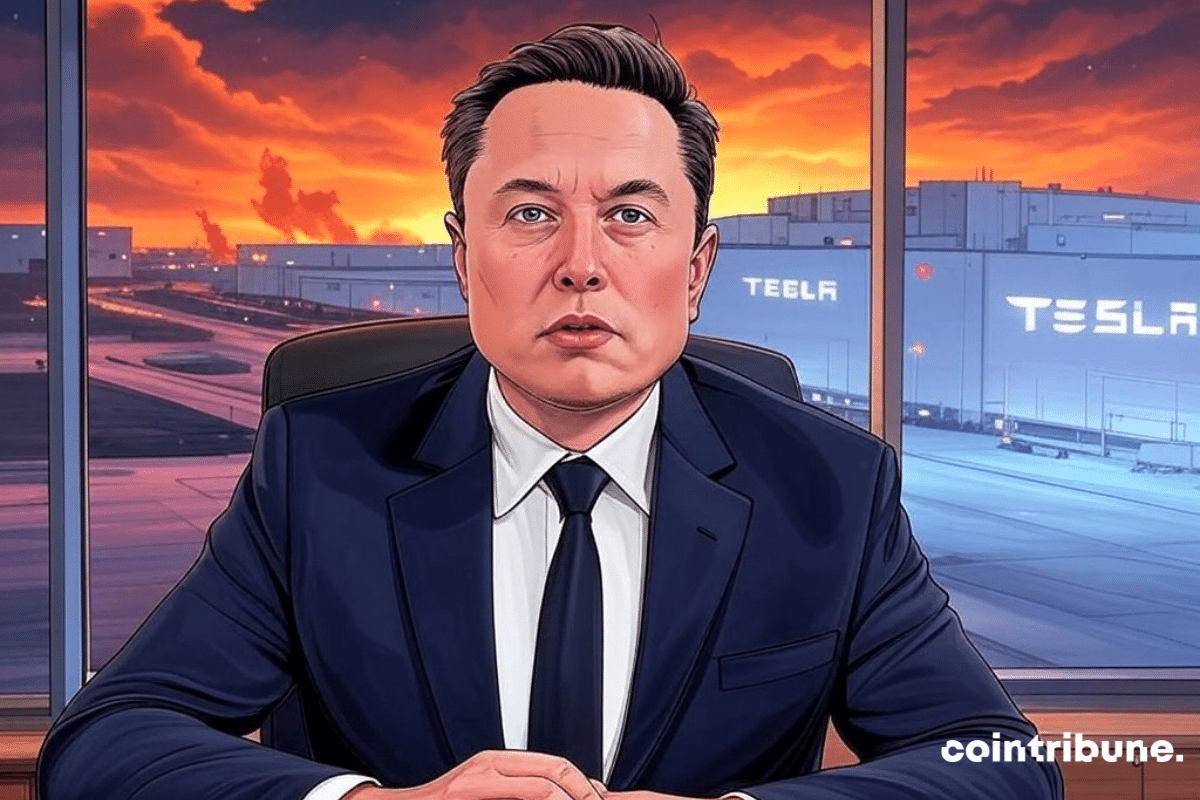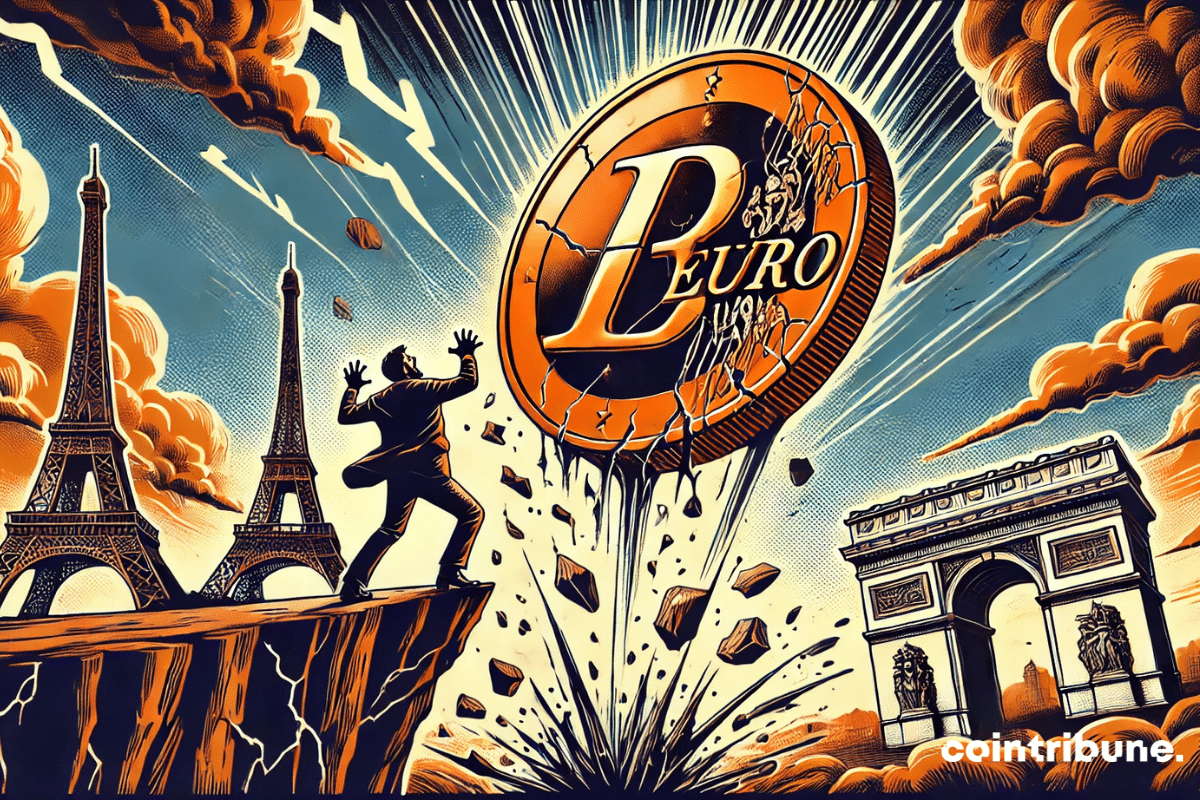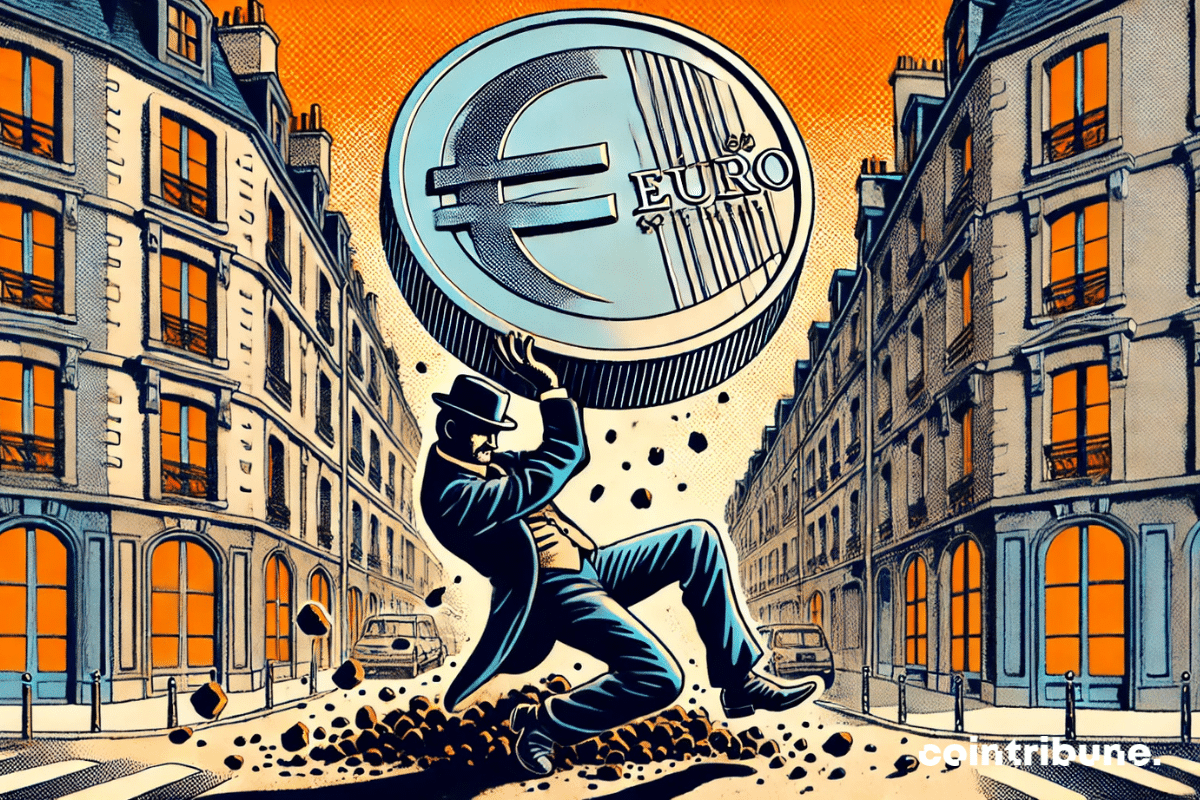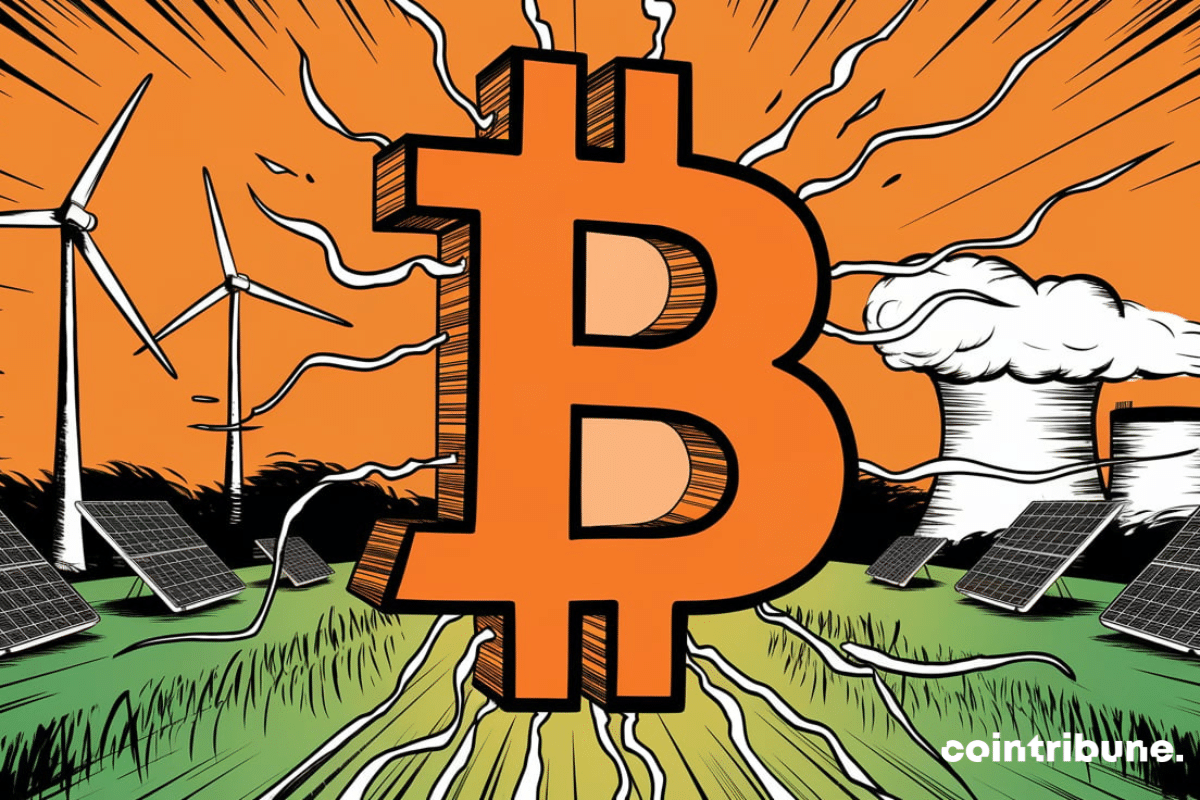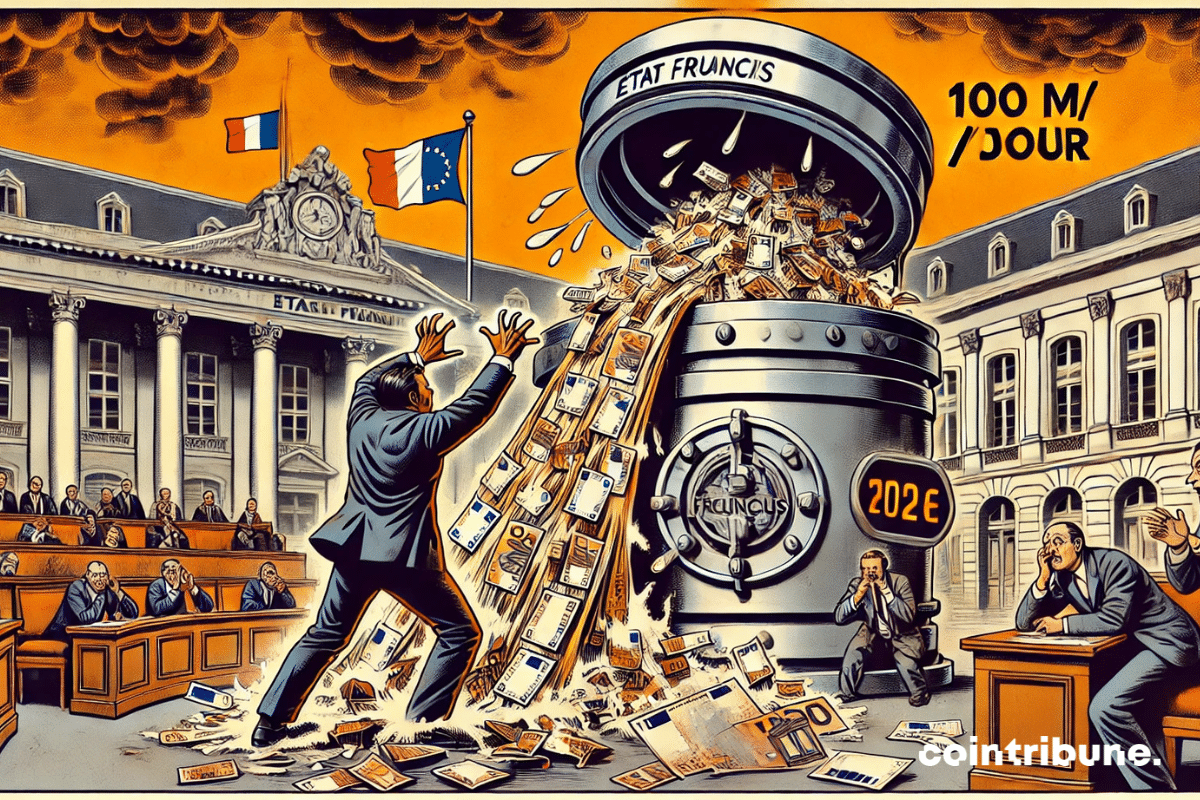Access to mortgage credit is a key barometer of economic health and the purchasing power of households. After a drastic decline in lending volumes in 2023, the European Central Bank (ECB) has initiated a shift with its first rate cut. This decision, welcomed by the Governor of the Bank of France, François Villeroy de Galhau, is accompanied by a series of indicators that suggest a gradual recovery in the market. But is this upswing sustainable? And above all, will it be enough to permanently reverse the trend for borrowers and actors in the real estate sector?
France
The French justice system is currently facing a bitcoin fraud case of considerable magnitude, involving two Franco-Israelis accused of embezzling nearly 12 million euros. One of them, Julien-Daniel X., is being held in detention after being arrested in France during a ski trip. He claims to have been arrested solely because he is Israeli.
Between the requisitioned Livret A, lightly tapped fortunes, and a starving military budget, Manu juggles: finding billions without upsetting anyone, this is an art worthy of the French budget circus.
The Financial Markets Authority (AMF) now imposes new fees on licensed crypto service providers in France. This measure, established by decree No. 2025-169 of February 21, 2025, is likely to weigh heavily on a sector that is already heavily regulated by the European MiCA regulation.
The new real estate market has entered an unprecedented slowdown spiral. While access to homeownership remains a priority for many households, the production of new housing is at its lowest level in over 50 years. In 2024, only 59,000 new homes were put up for sale, a decrease of 50% compared to 2022. Thus, this crisis, much deeper than a simple cyclical slowdown, is the result of a combination of structural and economic factors. Rising construction costs, increasingly difficult financing, and the withdrawal of institutional investors are all elements that hinder a rapid recovery.
France votes on a budget, the French express distrust: 80% predict collapse, 61% no longer even hope for themselves.
Valletta, February 18, 2025 - OKX, a global leader in blockchain technology, announces today that it is among the first global cryptocurrency exchanges authorized under MiCA to offer its services throughout Europe.
The Paris Stock Exchange is going through a marked period of hesitation, facing a double challenge: the threats of a trade war from Donald Trump and the geopolitical developments surrounding Ukraine. On Monday, February 17, 2025, the CAC 40 shows a slight decrease of 0.03% at 8,176.47 points, reflecting the investors' caution in the face of these major issues.
France is going through a pivotal period. On one hand, public debt has reached historic highs, exceeding 3 trillion euros. On the other hand, a profound transformation of institutions is disrupting the traditional balance of the Fifth Republic.
Is the value of a property still based solely on its location? While the French market is undergoing its most significant correction in decades, the dynamics of the sector seem to be reversing. After a sharp price drop in 2024, the year 2025 is set to be one of profound transformation for the market. From major metropolitan areas to medium-sized cities, from deserted offices to less accessible housing, a shift is taking place, driven by an unprecedented economic and regulatory context. Amid rising interest rates, tighter credit, and new environmental requirements, real estate must rethink its fundamentals.
The economic divide between the French is widening as wealth concentrates in the hands of a tiny minority. At a time when the debate over tax justice is raging, a recent study by the General Directorate of Public Finances (DGFiP) paints a picture of the 0.1% of the wealthiest French citizens, revealing an increasingly marked fracture with the rest of the population. Who are these 74,500 households that make up this financial elite? What are their incomes, the structure of their wealth, and how has their situation evolved over the past few decades?
The French are borrowing less and less, an unprecedented trend that raises numerous questions about the country's economic dynamics. For the past six years, the contraction of the credit market reflects both the caution of households and the structural difficulties in real estate and consumption. The rate of credit holdings has fallen to its lowest level in over thirty years, a situation that even exceeds the shockwave caused by the subprime crisis in 2008. However, the first signs of a rebound in 2025 are emerging, fueled by a gradual improvement in households' financial situations.
In an era where artificial intelligence is emerging as an essential strategic lever, France is preparing to host one of the most ambitious projects in Europe: the construction of a campus dedicated to AI supported by the United Arab Emirates. With an announced investment between 30 and 50 billion euros, this initiative represents a significant advance in the international competition for technological sovereignty and computing power. Behind this announcement lies a clear objective: to make France a European hub for artificial intelligence, thanks to cutting-edge infrastructure capable of competing with American and Chinese giants.
The social network X, formerly Twitter, is once again under judicial investigation in France. On January 12, Deputy Eric Bothorel alerted the Paris prosecutor's office about the algorithms of Elon Musk's platform, suspected of manipulation. This investigation follows several ongoing legal actions against the platform.
Tesla, once the king of electric roads, sees its empire wobble: Europe turns away, Musk slips, and the competition hits the gas. Is the future without him?
The deficit is growing, taxes are rising, but Bayrou persists. Clinging to his 49.3 like a castaway to his buoy, he defies the political storm that is looming.
The French economy ends the year 2024 on a worrying note with a contraction of 0.1% of its GDP in the fourth quarter. This situation arises in a particularly tense context, where the public deficit reaches the alarming level of 6% of GDP, placing France among the worst performers in the eurozone.
Rents in France continue to rise in 2025, putting pressure on household budgets in a rapidly transforming real estate market. With an average cost of 723 euros per month including charges, the increase reaches 3.3% compared to 2024. This phenomenon, which spans the entire territory, reveals significant disparities between major metropolitan areas and more affordable cities. While some regions experience a surge in prices, others remain more accessible. What are the factors behind this rental inflation and which cities are the most affected?
After Texas, Russia is also turning to the Bitcoin industry to balance its electrical grid and reduce costs. When will France wake up? And Germany?
The employment situation in France is experiencing a worrying deterioration. According to the latest figures published on January 27, 2025, by the Ministry of Labor, the number of unemployed job seekers without activity (category A) surged by 3.9% in the fourth quarter of 2024 compared to the previous quarter. This represents an additional 117,000 unemployed individuals, bringing the total to 3.1 million people, a level not seen in a decade, excluding the Covid-19 period.
For several decades, French budget management has been a source of recurring tensions, but the current situation has reached an unprecedented level. In 2025, the censorship of the budget voted by the Senate plunged the country into a major financial crisis, with losses estimated at 100 million euros per day. In the absence of a new text validated by the National Assembly, the budget for 2024 remains in effect, depriving the state of essential revenue and savings measures. Amélie de Montchalin, Minister for Public Accounts, warns about the repercussions of this deadlock and emphasizes both its economic cost and the institutional challenges it reveals.
The global crypto industry, already under pressure from increasingly strict regulations, is once again shaken. Indeed, French authorities have just opened a judicial investigation targeting Binance, the world leader in crypto exchange platforms. This procedure, which is based on serious accusations such as money laundering, tax fraud, and drug trafficking, highlights the growing tensions between regulators and players in a sector still seeking clear legal frameworks. While Binance denies these allegations, this case could tarnish the platform's image, but also redefine the rules of the game for the entire industry.
The dream of owning a detached house with a garden, shared by nearly 80% of the French according to a recent study, could soon become unattainable. The reason is a reform introduced by the Climate Resilience Law which aims to reduce land artificialization to preserve natural, agricultural, and forested areas. By 2050, this measure aims to achieve "net zero artificialization," which radically changes urban planning rules. This project, although ecological, is already causing a surge in the price of buildable land and limiting its availability, raising concerns among future homeowners and real estate professionals.
The mortgage credit market is undergoing a major shift at the beginning of 2025. After a rapid increase between 2022 and 2023, interest rates have been continuously declining for more than a year, with the hope that they will fall below the symbolic threshold of 3% in the coming months. This evolution, driven by the slowdown in inflation and the accommodative monetary policy of the European Central Bank (ECB), is attracting the attention of households and investors. However, these promising figures are set against a fragile economic context, characterized by low growth and rising financial uncertainties. It therefore becomes crucial to understand the underlying issues and their implications for the future.
In 2024, regulated savings accounts in France, the Livret A and the Livret de Développement Durable et Solidaire (LDDS), reported a record amount of 16.8 billion euros in interest for savers. This impressive sum was announced by the Caisse des Dépôts, highlighting the ongoing appeal of these savings products despite an uncertain economic context.
Bayrou, an anxious prophet, portrays a Europe that watches a conquering dollar and a martial Trump, crushing our dreams of independence. The time for denial is over: it's time for a resurgence.
From January 31 to February 2, 2025, Alephium, a next-generation blockchain, will participate in CryptoXR, the second largest crypto conference in France, to organize a large-scale hackathon in partnership with LSW3 (League for Web3 Security). This event promises to make Auxerre the French capital of Web3, attracting over 3,000 visitors, 70 speakers, and innovative projects.
Michael Saylor, the visionary co-founder of MicroStrategy, sees considerable potential for Bitcoin adoption in France. This statement follows a meeting with Sarah Knafo, a Member of the European Parliament, during a lunch where they discussed the future of cryptocurrencies and energy.
According to economic projections and analysis by international experts, no European economy will be among the top ten world powers by 2050.
For the past two years, the French real estate market has been undergoing a deep crisis, fueled by soaring prices and difficulties in accessing credit. In response to this critical situation, François Bayrou, the Prime Minister, presented a set of measures aimed at revitalizing this vital sector for the national economy. Focused on tax incentives, increased support for construction, and regulatory adjustments, these proposals seek to address current challenges while considering social and environmental issues. While these initiatives spark hope for a rebound, they also raise many questions about their effectiveness and implementation.
